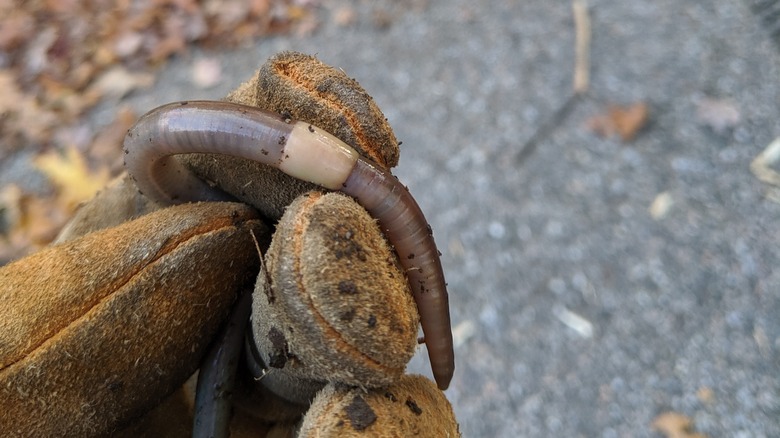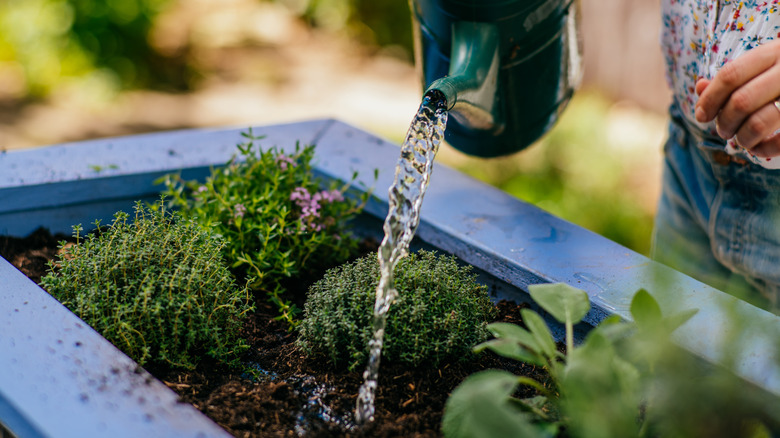You Can Use An Easy Vinegar Trick To Kill Worms In Your Garden (But Should You?)
When digging in the dirt, you've likely seen a worm or two. Many people want to attract worms to their gardens. But are all worms healthy for your outdoor space? No, they are not! Before deciding to eliminate worms in your soil, it's important to identify them to determine if they are problematic or not. Earthworms, red wigglers, and nightcrawlers are great for your soil — they help aerate your garden, allow for better drainage, and break down organic materials. There are even certain materials you should be feeding your worms for a healthy garden. However, the invasive jumping worm competes with earthworms for resources, makes the soil unstable, breaks down helpful fungi, and prevents plants from germinating. It is clear that removing invasive worm species from your garden is important for protecting your garden's ecosystem, but what is the best way to do so without hurting your plants or beneficial earthworms?
One way that people have tried to kill harmful worms is to create a 1:10 or 1:20 vinegar to water solution in a spray bottle and spray it on the garden. This vinegar hack works but it will also kill your beneficial worms and kill or damage your plants. Instead of using vinegar to remove harmful worms, mustard seeds might be the key to getting rid of these pests.
How to get rid of invasive worms
Once you know you have invasive worms in your soil, you can easily get rid of them without harming your plants. Unfortunately, most pest control practices that will harm bad worms will kill good ones, as well. Rather than using vinegar, which can do more harm than good to your plants and soil, there are some effective alternatives. Perhaps the best option is is mixing ⅓ cup of ground yellow mustard seeds with 1 gallon of water. Then, pour half of the mixture on one square foot of your garden. The mustard will irritate all the worms — good and bad — and they will surface. Pick up the invasive worms while wearing a pair of gloves and place them in a bucket of soapy water. Leave the good earthworms to return to the soil.
When they are dead, make sure you place the harmful worms in the trash. Do not compost them or return them to the ground to prevent the cocoons still in the dead worm from hatching in the soil. The best part about this method is that it doesn't harm your plants and allows you to save the good earthworms. To make sure that your garden stays free of harmful worms, check new soil and plant pots for cocoons or worms before planting, and read about why putting mulch in your garden could invite jumping worms.

